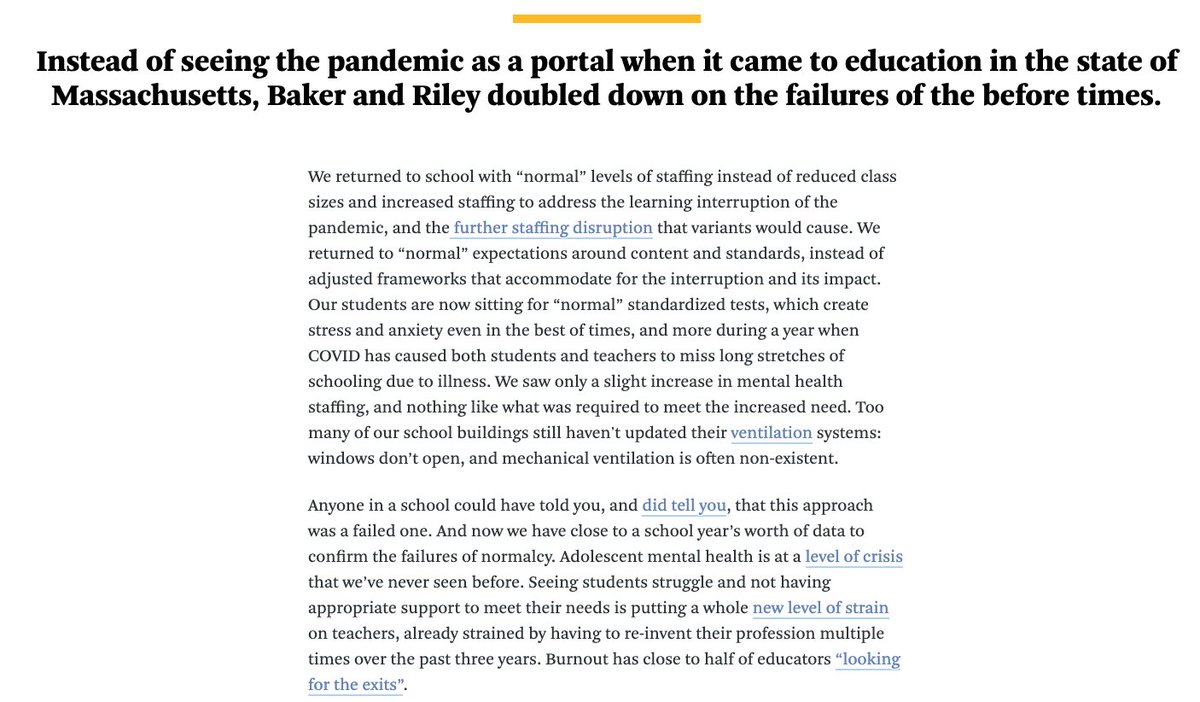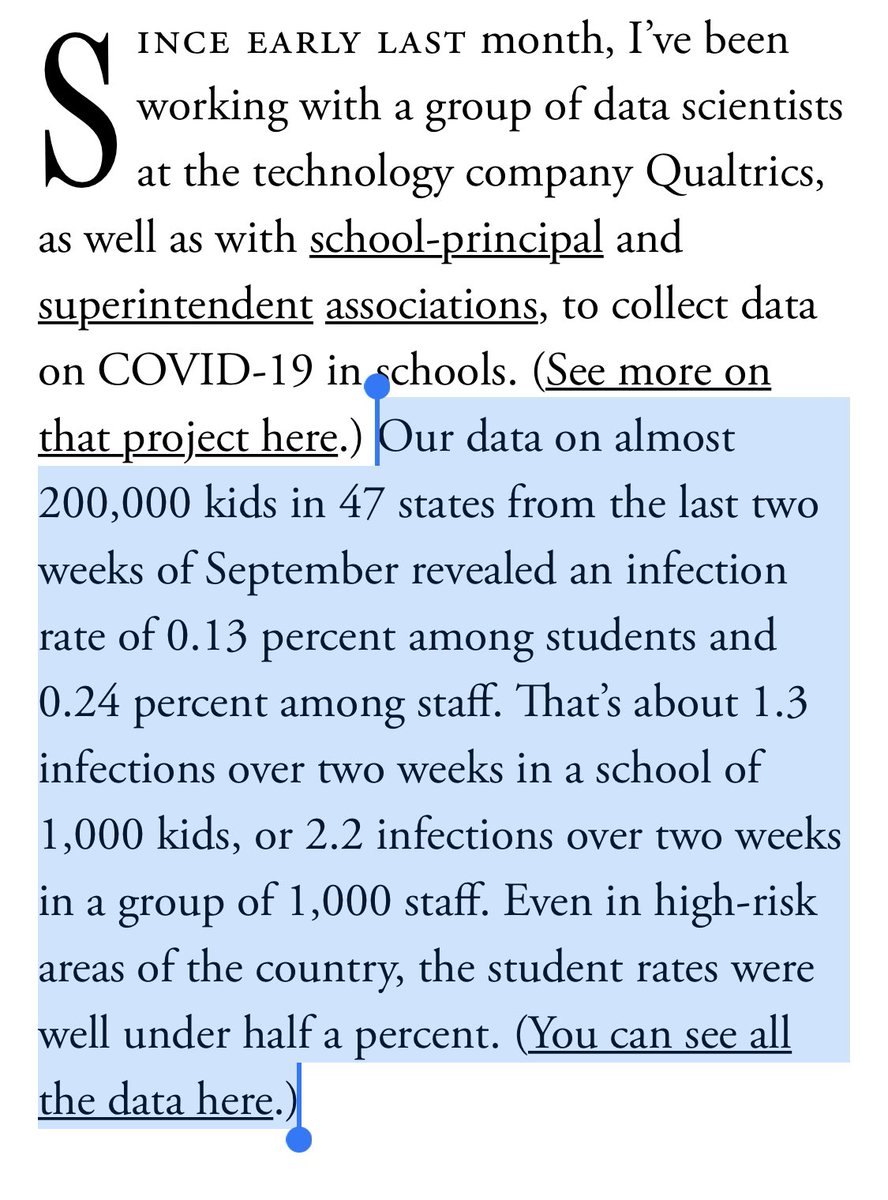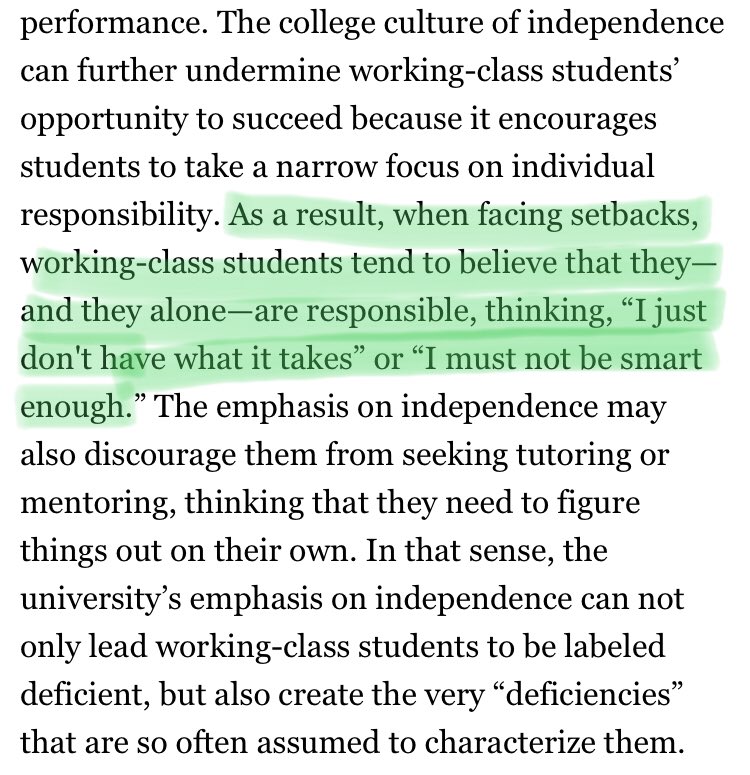
ScD Epidemiologist | Postdoc | Perinatal Epi | #EpiTwitter #ADHD| alum: @harvardepi @northwesternU | Tweets own. | She/Her/Dr | SoMe Editor @PPE_Journal
How to get URL link on X (Twitter) App



https://twitter.com/AvashiaNeema/status/1526200179145285633"Because even prior to the pandemic, “normal” wasn't working. ...Too many students felt churned through a system that through its schedule, structure, and offerings, communicated that they were not at the center of its design."
https://twitter.com/WSJhealth/status/1479103724127612939Going into a public indoor space without a mask right now... VERY NOT RECOMMENDED!


https://twitter.com/thrasherxy/status/1478831617464487940An extra few days vacation or remote learning could keep keep schools open.
https://twitter.com/m_scribe/status/1478739742665629699?s=20

https://twitter.com/jeremyfaust/status/1427489818645303296As the linked article even very sick kids have high survival IF they can receive care.

https://twitter.com/memangrum/status/1427620570905075713Another thing worth noting:
https://twitter.com/tarahaelle/status/1373037539427254276So, say for me, an unvaccinated adult potentially at risk for complications from covid, with an adult partner (low risk) and no children:

https://twitter.com/DrDarria/status/1355185892240060416The study follows the experience of two K-12 independent schools through the fall of 2020.
https://twitter.com/arunfrey/status/1321796975013044224Partially this is bc MANY things have changed with the pandemic.

https://twitter.com/profemilyoster/status/1314572214621143040I’m all for a data-driven approach & I definitely applaud the work needed to pull this data together!

https://twitter.com/ken_rothman/status/1285572013990518786First, these are pretty small studies for the subject matter.

https://twitter.com/maiamajumder/status/1219697070069538816According to the quoted tweet we have this data:
https://twitter.com/epi_d_nique/status/1150761998432571392Not all methods/issues are relevant to everyone’s work so there’s no reason you should be fluent in all of Epi.

 Although I did very well in the end, I had a very rough start. I was convinced my admission was a mistake.
Although I did very well in the end, I had a very rough start. I was convinced my admission was a mistake.